Are you looking to make your mark in the publishing world? Crafting the perfect proposal can be a game-changer, capturing the attention of agents and publishers alike. In this article, we'll explore the essential elements of a successful publishing proposal, offering tips to showcase your unique voice and vision. So, grab a cup of coffee and join us as we dive into the exciting journey of acquiring publication!
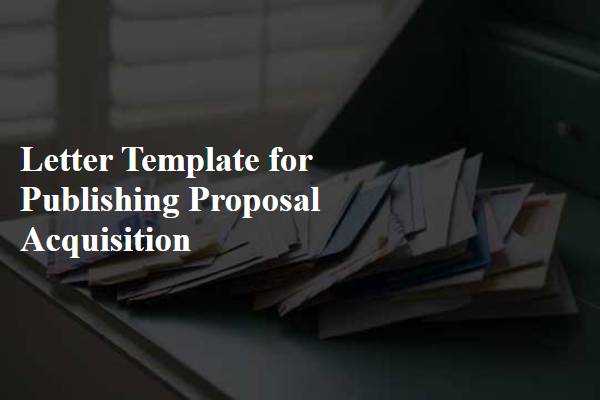
Title of Manuscript and Author Information
Title of the Manuscript serves as a crucial indicator of the content and focus of the work, offering insight into the author's intentions and areas of expertise. Author Information includes vital details such as the author's full name, academic affiliations, and contact information, which can help publishers assess the credibility and relevance of the manuscript. Providing a brief biography may further establish the author's qualifications and previous publications, enhancing the proposal's appeal to potential publishers looking for authoritative voices in specific fields.
Summary of Manuscript's Content and Unique Value
The manuscript "Navigating Climate Change Impacts on Coastal Ecosystems" presents a comprehensive analysis of the significant threats climate change poses to coastal environments, particularly in vulnerable areas like the Gulf of Mexico and the Caribbean Sea. Through a combination of quantitative data and case studies from 2022, the authors highlight the unique interplay between rising sea levels, increased storm intensity, and biodiversity loss, emphasizing the urgent need for adaptive management strategies. This work stands out by integrating local community perspectives, sourced from interviews with over 100 residents, and offers actionable solutions for policymakers to mitigate these impacts. The innovative approach of combining ecological research with social dynamics provides a fresh viewpoint, ensuring relevance for both academic audiences and environmental advocacy groups.
Target Audience and Market Analysis
The target audience for publishing proposals predominantly consists of literary agents, editors, and publishing houses focusing on categories such as fiction, non-fiction, and academic literature. Age demographics often range from 25 to 55 years, with varying educational levels, from undergraduate degrees to advanced scholarly qualifications. Market analysis indicates a significant trend towards digital formats, with over 30% of readers in the United States preferring eBooks due to their convenience and accessibility, particularly in urban areas such as New York and Los Angeles. Furthermore, the rise of self-publishing platforms has created a competitive landscape, prompting traditional publishers to explore niche genres and localized content to engage a more diverse readership, particularly in emerging markets such as Southeast Asia and South America, where reading habits are evolving rapidly. This environment necessitates comprehensive proposals that address both market demand and innovative distribution strategies to capture the attention of potential publishers.
Author's Credentials and Platform
In crafting an effective publishing proposal, highlighting the author's credentials and established platform is pivotal. The author's background, including advanced degrees in creative writing or literature from renowned institutions, enhances credibility. Previous publications, such as articles in literary journals or bestselling novels, showcases expertise and market understanding. Additionally, a robust online presence, illustrated by a significant number of social media followers (for example, over 50,000 on platforms like Instagram and Twitter), can demonstrate broad audience engagement. Participation in literary events, like the annual Book Expo America, provides further visibility, solidifying the author's reputation within the publishing community. Collaborations with well-known influencers or other authors can amplify outreach, ensuring a higher likelihood of successful marketing and audience connection post-publication.
Contact Details and Next Steps
Publishing proposals typically include essential information that guides a successful acquisition process. A detailed note highlighting contact details should include the name of the publisher, address (such as New York City for major publishing houses), email address, and phone number, providing multiple avenues for communication. Next steps in the acquisition process often outline the timeline for manuscript review, potential revisions, and discussions about contract terms, facilitating a transparent dialogue between authors and publishers. Setting expectations around timing, such as a 6-8 week review period, can enhance collaboration and ensure clarity. A call to action may invite authors to submit their work via specified channels, fostering a streamlined submission process.
Letter Template For Publishing Proposal Acquisition Samples
Letter template of publishing proposal for academic research compilation

Letter template of publishing proposal for professional development materials
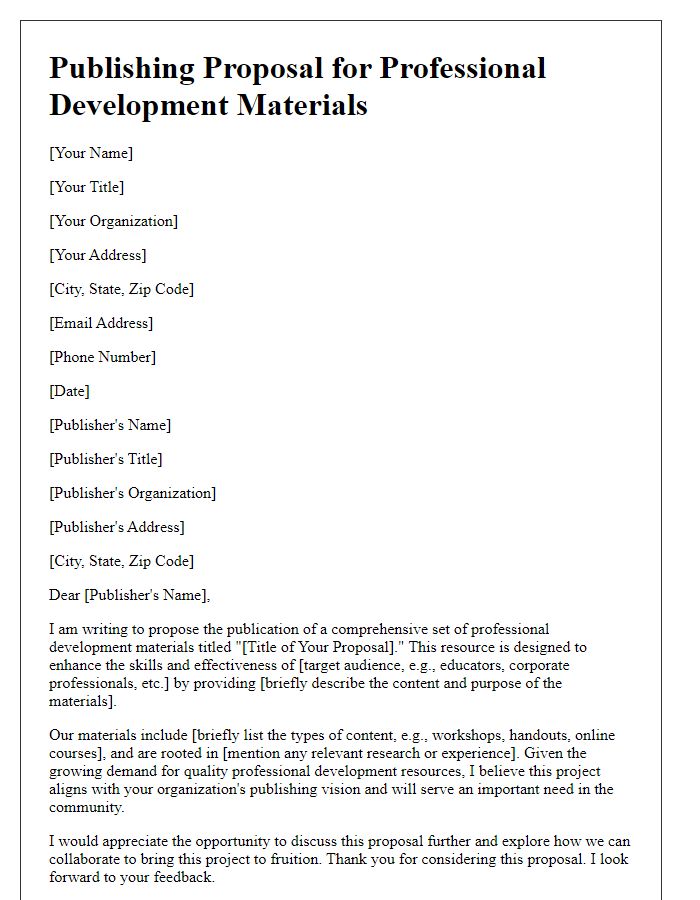

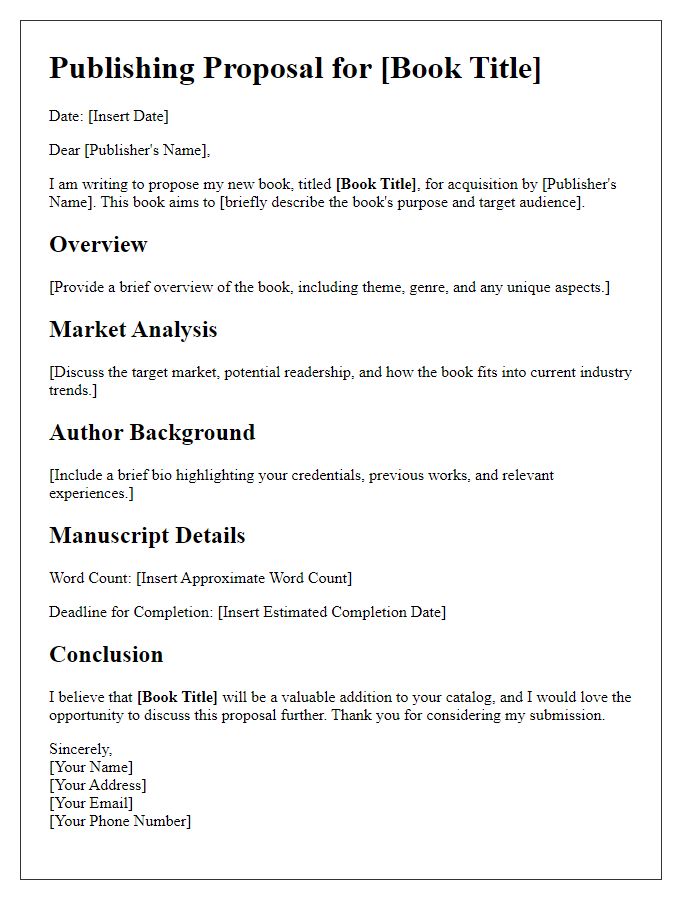
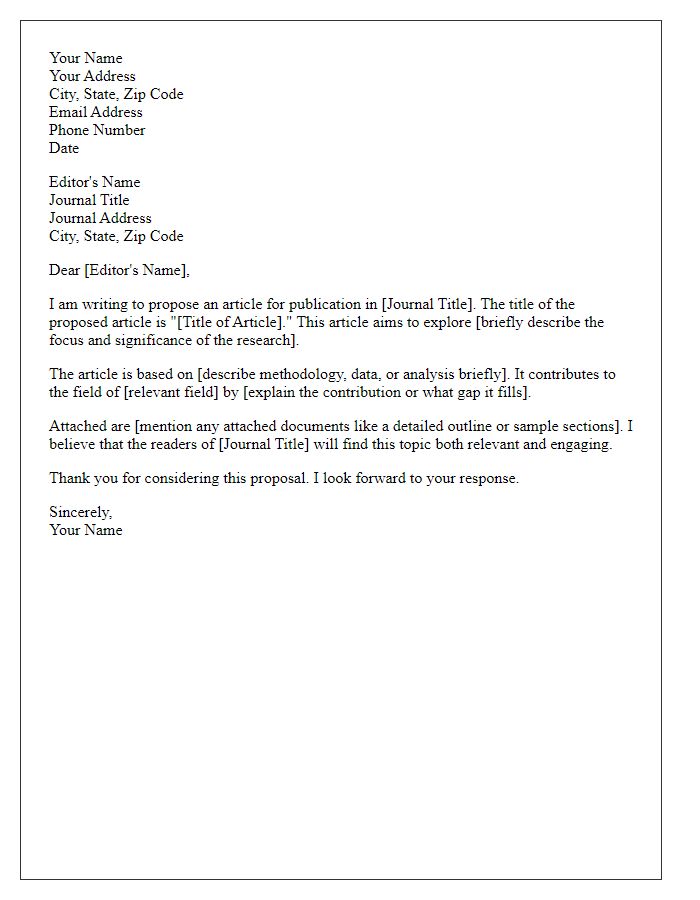
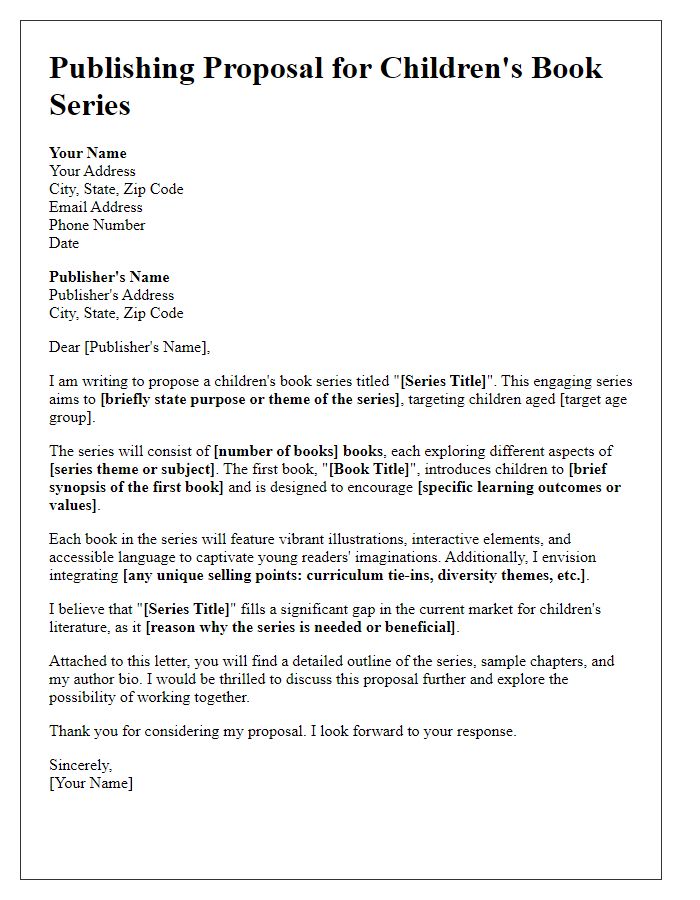
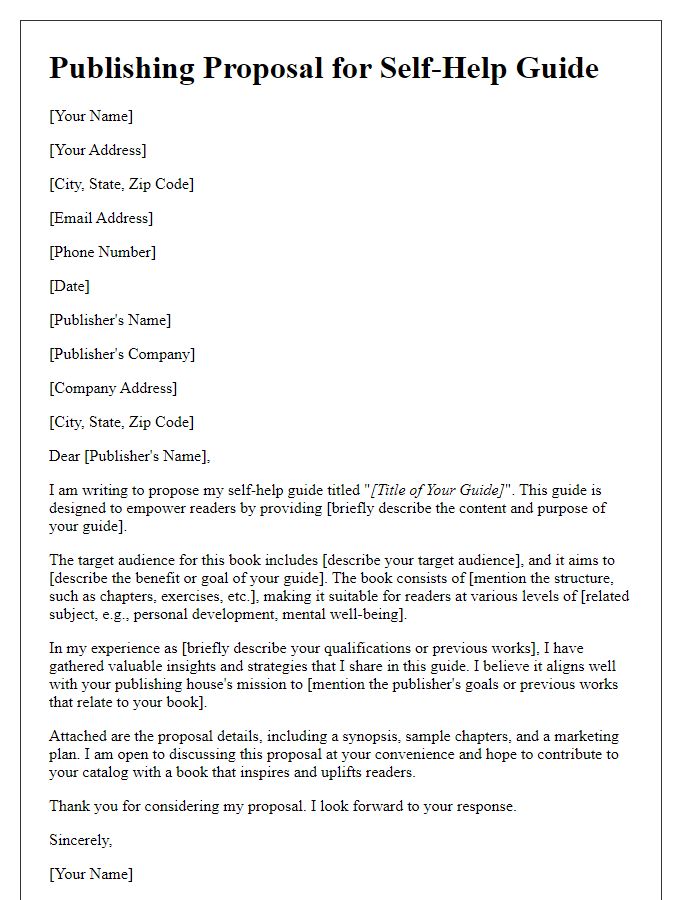
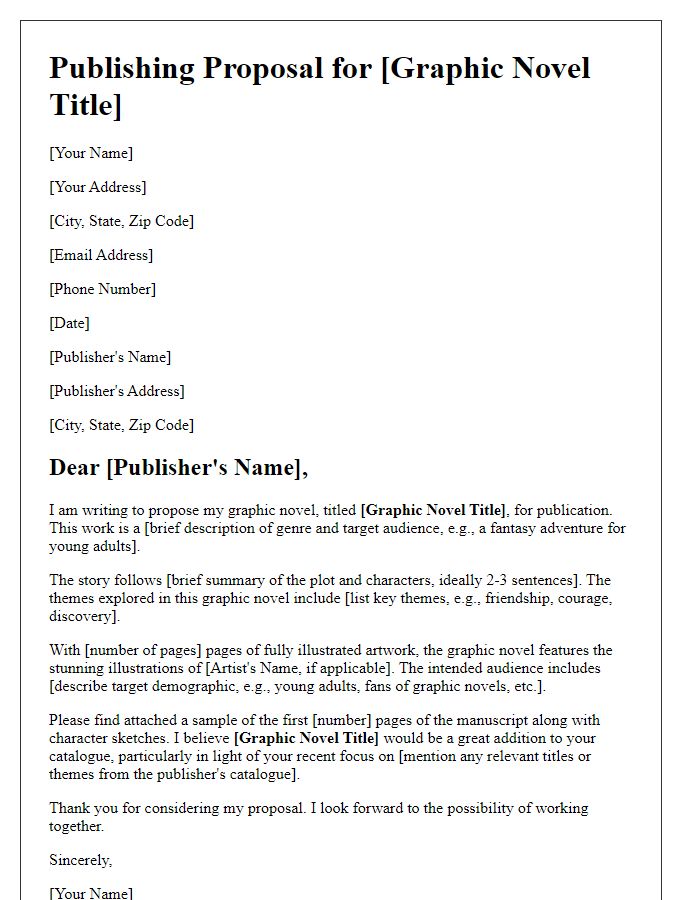
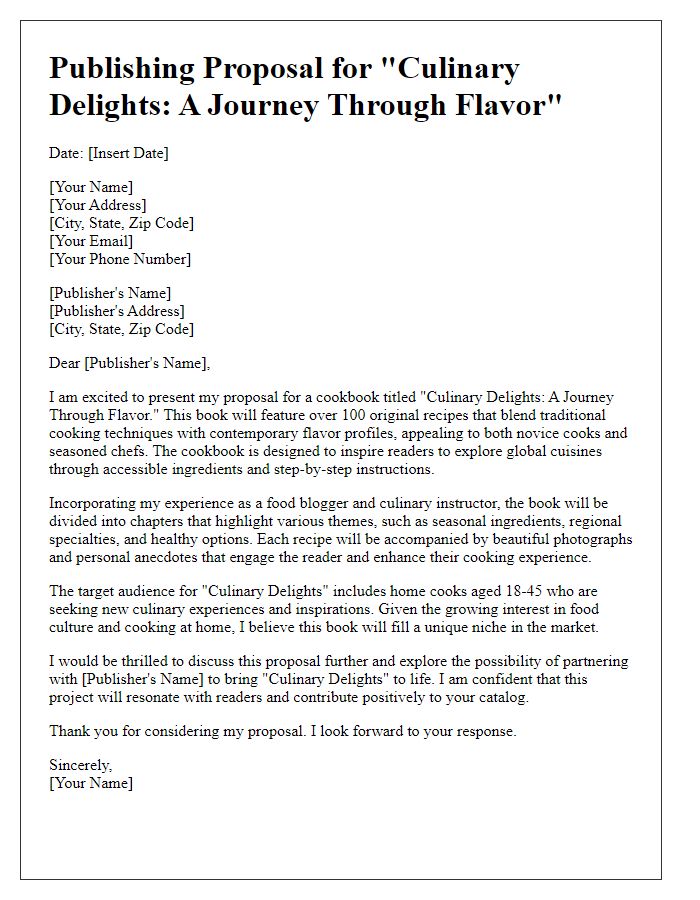
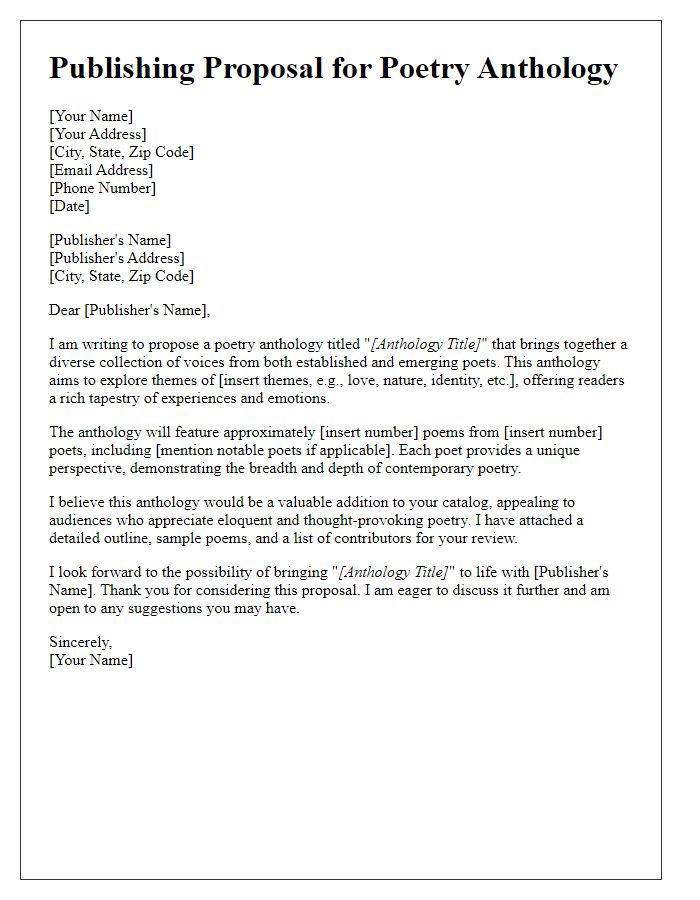
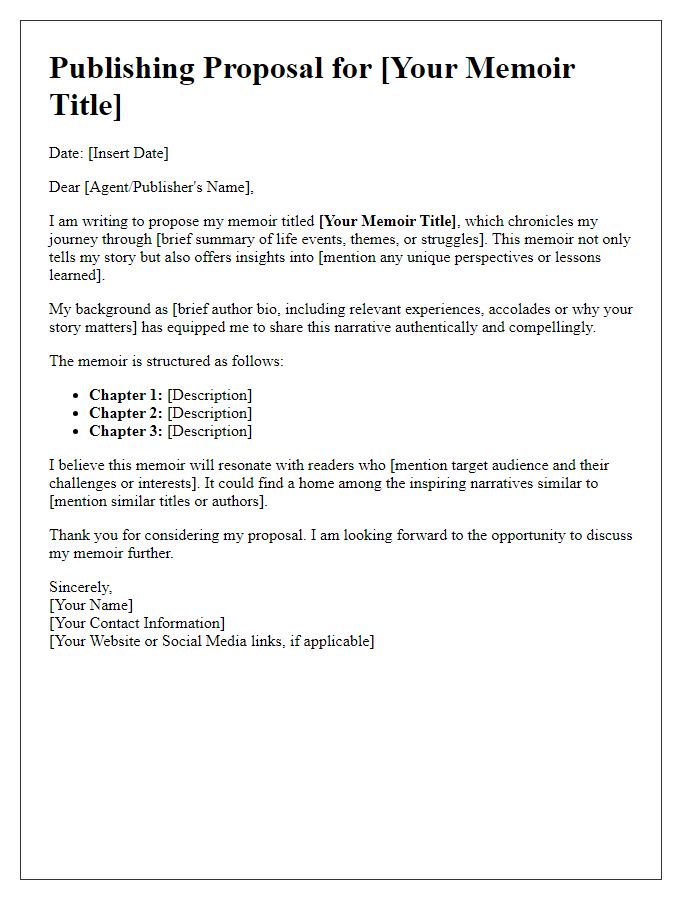

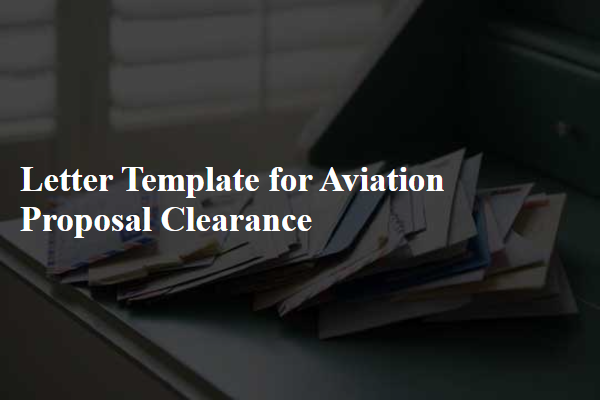
Comments